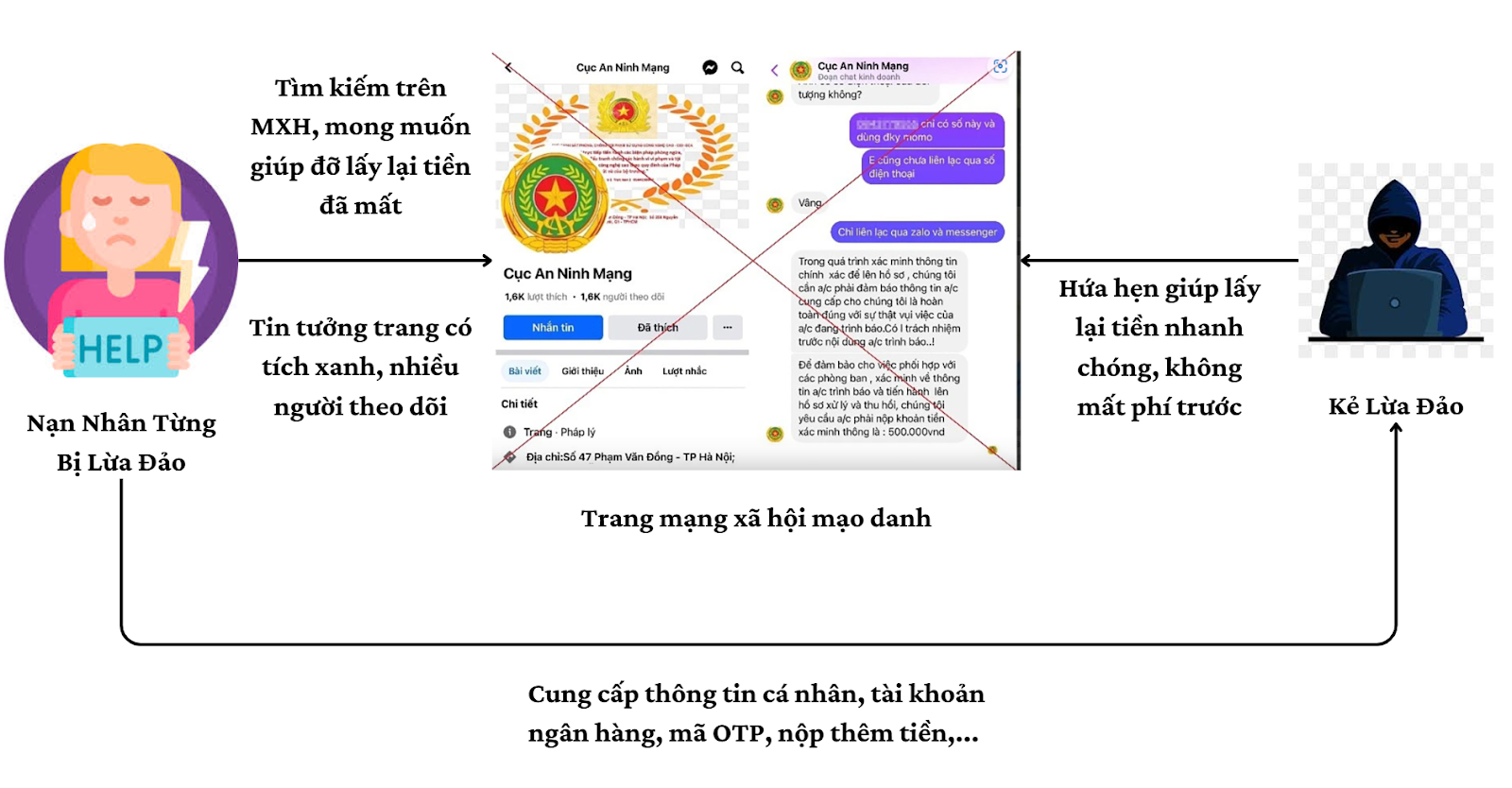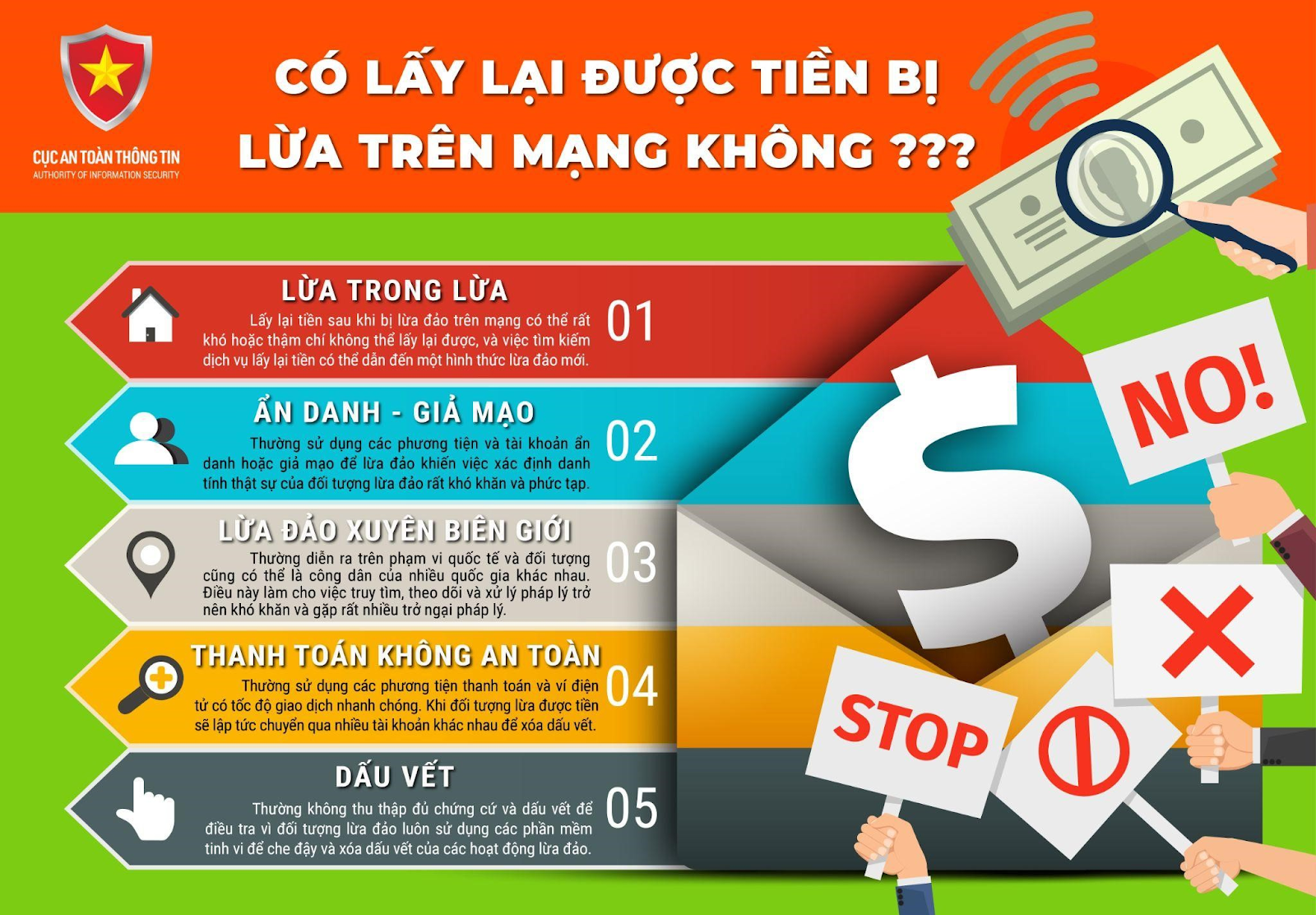Recently, a seemingly familiar scam has been spreading on social networks, preying on the panic and desire to get money back of scam victims. Bad guys impersonate the Departments of the Ministry of Public Security, promising to help people recover lost property. But don't trust them easily! This is a dangerous trap that you need to be extremely vigilant about.

Hoa's story: from hope to despair
The situation happened to Ms. Hoa, a beautiful, hard-working employee who only wanted to earn extra income. But then, she was tricked into investing in a project of unknown origin, and all the money she had saved for so long “disappeared”. In a panic, she tried to get her money back and accidentally found a Facebook page called “Financial Security Department” that promised to help her get her money back. Hope flared up when she saw that this page had a blue check mark, many positive comments from other users, and promises to only charge fees after success. Without hesitation, she contacted them immediately.
After contacting, Ms. Hoa was instructed by a person who claimed to be a “Security Bureau employee” to provide personal information and pay a small amount of money to “open a case”. Although she was still a little worried, the fear of losing all her money blinded her. After the first deposit, other requests kept appearing with the excuse of “speeding up the process”, and she continued to transfer money until she discovered that she had been scammed. Her last hope was gone, Ms. Hoa not only lost all her previous money but also fell into heavy debt.
The Perfect Impersonation Trap
From Hoa's story we can also see how she was scammed once again:
- Fraudulently losing property: Ms. Hoa was scammed out of money in an investment scam, feeling confused, worried, and wanting to find her property back.
- Looking for a solution on social media: She sought help from social media sites and came across an advertisement from a fake government agency page.
- Believe in promises: She was convinced by the promise of free help, only charging after the refund was made.
- Providing personal information, paying more money: She was asked to provide sensitive information, pay more money for many different reasons.
- “Lost money and got nothing in return”: Not only did she get her money back, she also lost more money to the scammer.
According to the Information Security Department, all websites advertising services such as “helping to recover money” or “supporting to get money back” are scams. Bad guys impersonate the police, taking advantage of the victim’s panic and desire to recover their property to steal more money.
To avoid falling into the same trap, you need to stay alert and armed with knowledge to protect yourself. Here are some simple but effective preventive measures:
1. Beware of fake sites
Never trust social media sites, even those with blue ticks, without verifying them thoroughly! Always check the source of a website or account, and only rely on information from official, trusted sources.
2. Do not share personal information
Never provide personal information such as ID card number, OTP code or bank information to anyone online. Personal information is the key to protecting your assets.
3. Report immediately if in doubt
If you suspect that you have come into contact with a scammer, or have even been scammed, report it immediately to the nearest police station. Never listen to the instructions of anyone who pretends to be able to help the victim get their money back without first transferring a fee.
Conclusion: always be alert and alert
Scammers are constantly evolving and looking to exploit our anxiety and fear. Don’t let confusion fool you. Being alert and alert is the greatest power to protect you and your family from lurking dangers.
If you have experienced or witnessed scams, please share your experiences. Spreading this information will help create a stronger community, more vigilant against scams.










































Comment (0)